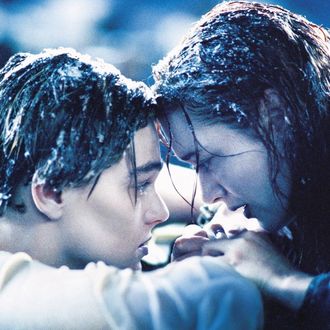
James Cameron’s heart will not go on until we stop asking him about this. Ever since Titanic was released in 1997, people have questioned if Jack really had to die — Rose might have let go, but the world clearly hasn’t. “We have done a scientific study to put this whole thing to rest and drive a stake through its heart once and for all,” Cameron told the Toronto Sun. The results will be showcased in a documentary special coming to National Geographic in February, coinciding with a 4K restoration of Titanic hitting theaters on Valentine’s Day weekend. The director described his little science project as a “thorough forensic analysis” that involved a hypothermia expert who reproduced the floating plank from the movie. “We took two stunt people who were the same body mass of Kate [Winslet] and Leo [DiCaprio] and we put sensors all over them and inside them and we put them in ice water and we tested to see whether they could have survived through a variety of methods and the answer was, there was no way they both could have survived,” he said. “Only one could survive.” Wait, they put sensors inside the stunt doubles? We hesitate to even ask …
Cameron told the Toronto Sun that he thinks Jack’s death was necessary for artistic purposes. “It’s like Romeo and Juliet,” he said. “It’s a movie about love and sacrifice and mortality. The love is measured by the sacrifice.” Still, he wants us to know this particular sacrifice is backed up by the laws of nature. The director has long argued that regardless of whether there was enough room on the plank, there wouldn’t have been enough buoyancy to keep two people afloat without sinking — that’s just The Way of Water, one might even say. He previously called the MythBusters “full of shit” for suggesting that Rose could’ve strapped her life jacket under the plank to increase buoyancy; according to Cameron, you’d die of hypothermia if you tried to get in the water and do that. No one took his word for it then, but perhaps this new study will shut people up. “Maybe … maybe … after 25 years, I won’t have to deal with this anymore,” he reflected hopefully to the Toronto Sun. Right, because humans have such a flawless track record when it comes to trusting science in times of confusion.


